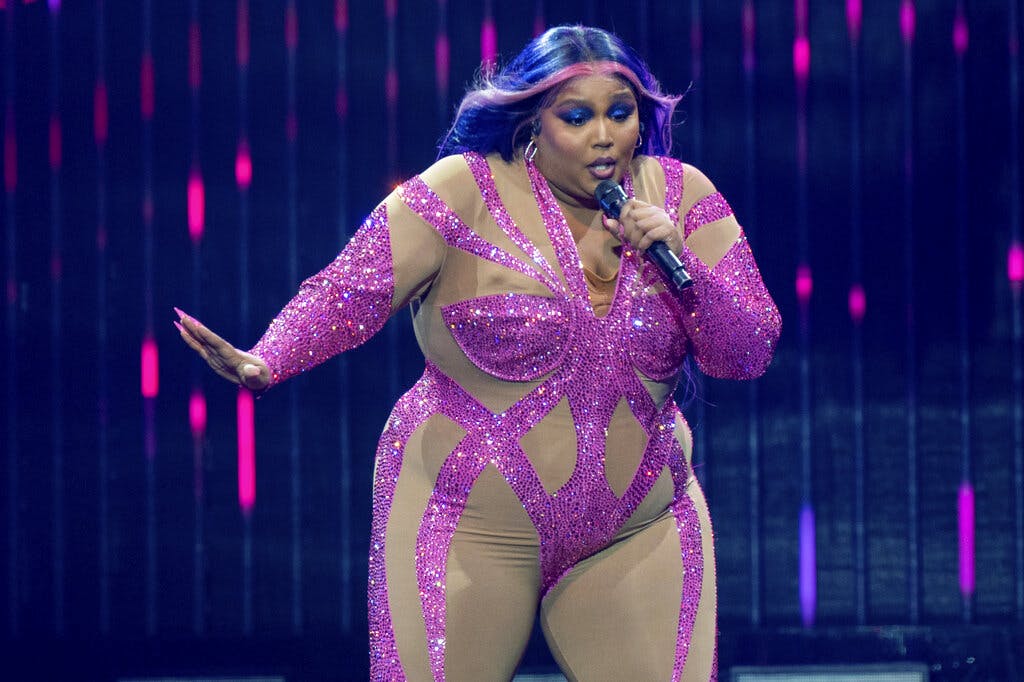Lizzo Decries ‘Cancel Culture’ Appropriation
Like targets of the ‘Two Minutes Hate’ in George Orwell’s ‘Nineteen-Eighty-Four,’ everyone is required to denounce those who have been canceled.

A Grammy Award-winning singer, Lizzo, is making waves with a tweet calling out those using cancel culture to serve their own ends, urging a refocusing on “real problems.” Time will tell if she’s able to stand her ground or will fall victim to the digital peasants with pitchforks.
“This may be a random time to say this,” Lizzo, born Melissa Jefferson, said, “but it’s on my heart: Cancel culture is appropriation. There was real outrage from truly marginalized people and now it’s become trendy, misused, and misdirected. I hope we can phase out of this & focus our outrage on the real problems.”
Lizzo’s remarks illuminate the evolution of “cancel culture” into a catchall term that freezes hearts, stifling open conversation, greater understanding, and social advancement. Canceling people activates the blue-check boycotters just as claiming to be a victim of it energizes their opponents.
This leaves no room for, say, President Reagan to apologize for — and offer reparations to — Americans with Japanese ancestry interned by President Franklin Roosevelt during World War II. Under the rules of cancel culture, that reckoning would be swift, not a deliberative effort that takes time to change bipartisan hearts and minds.
At its worst, cancel culture is vindictive overreach by political foes playing “gotcha” or suppressing free speech. In either case, it has become little more than a mantra that promises to do a mob’s thinking for it, which doesn’t advance Lizzo’s goals of amplifying the unheard.
In February, author and producer Bijan C. Bayne called out a similar term in his Washington Post op-ed, “How ‘Woke’ Became the Least Woke Word in U.S. English,” as we discussed when I hosted The Derek Hunter Show. “To the first users of the word,” Mr. Bayne said, “it meant recognizing racial subjugation committed by whites. Thus, a white YouTuber or a liberal congressperson cannot, by the literal definition, be woke.”
The term “cancel culture” is similar to intellectual laziness, a catchall for virtue or vice. Musical artist and animator Ace Vane captures this absurdity well in his YouTube parody of a superhero cartoon. Comedian Leslie Jones, as Miss Martian, has a sincere desire for justice, scolding other characters for apathy and for planning to use a protest march to shoot a rap video.
Three characters lament their cancellation for “unpopular opinions.” The first let slip that she didn’t like Beyoncé’s music, the second that Herman Cain “might have some good ideas,” and the last sang a Trinidad James song that included an infamous racial slur — “with the hard R.”
“Cancel culture may have started as an idea of filtering toxic things out of the culture,” Mr. Vane told me via Twitter. “Now, it’s become an overused, over-saturated phrase that holds no true weight after about 72 hours. I’ve never seen it actually work for long even when it did ‘mean’ something.”
Last year, Lizzo won the People’s Choice Award for People’s Champion. “To be an icon,” she said in her acceptance speech, “is not about how long you’ve had your platform. Being an icon is what you do with that platform. And ever since the beginning of my career, I’ve used my platform to amplify marginalized voices.”
Few are more marginalized than the man or woman who is the target of cancellation, with millions demanding that they never be allowed to work or speak again. Like targets of the “Two Minutes Hate” in George Orwell’s “Nineteen-Eighty-Four,” everyone is required to denounce them.
Fail to do so — or to do so loud enough — you may find yourself banished to what Mr. Vane’s short refers to as “the Canceled Realm,” existing but never heard from again, Orwellian “un-persons.” The pull to misuse such awesome power is hard to resist, since it’s much easier to destroy an opponent than persuade them with facts, openness, and respect.
Lizzo’s tweet, though, racked up more than 4 million views in its first six hours, demonstrating that not everyone cowers in the face of cancel culture or cheers its bloodlust. Some Americans still prefer to think for themselves, and have faith that persuading fellow citizens is the best tool to achieve lasting change.

